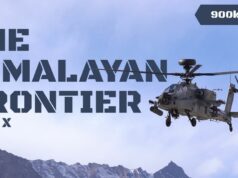NEW DELHI: On ‘Talking Point‘, Ambassador Syed Akbaruddin, India’s Former Permanent Representative to the UN, Dean, Kautilya School of Public Policy and Author, ‘India vs UK: The Story of an Unprecedented Diplomatic Win‘ in conversation with StratNews Global Associate Editor Amitabh P. Revi.
Ambassador Akbaruddin discusses the UN Security Council ISIL (Da’esh) and Al-Qaida Sanctions Committee adding Lashkar-e-Taiba deputy chief Abdul Rehman Makki to its sanctions list seven months post India’s proposal, after China lifted its block. “China has been the protector of Pakistani nationals when India proposes them for listing,” India’s former UN Envoy says, adding “the first listing that we tried very hard for more than a decade was for Masood Azhar. It took us 10 years. This one took us less than a year.” On the Pakistan-China nexus, the Ambassador, in whose tenure Massod was listed, is categorical. “Their interests are congruent. We have this task of not only tackling Pakistan, but tackling a double team of China and Pakistan with one of them being permanently in the Security Council. And so, we work with other partners. There are times where China needs something else. And at that time, it eases up because it will not get its say in areas it wants and we are able to get our proposals through.” Ambassador Akbaruddin also looks back to when he was First Secretary at the UN mission and India proposed the Comprehensive Convention on International Terrorism (CCIT) in 1996 and he explains the UN system, processes, international law, international jurisdiction, the need for reform “for greater transparency and greater accountability to speed up many of these decisions.”
Watch this interview for more on what the former Envoy says on the reasons for China’s veto on listing while it is at the same time extremely sensitive to radicalism, extremism and terrorism from the Af-Pak region, other individuals India has in the sanctions pipeline, the effectiveness of listing, the steps to take following the designation, the Financial Action Task Force (FATF), and India working with like-minded countries including veto powers-the U.S. and France.




